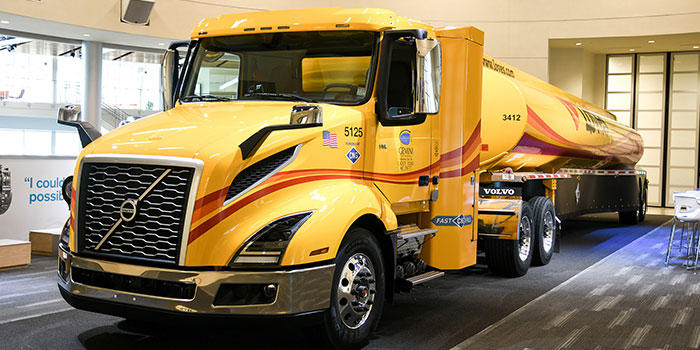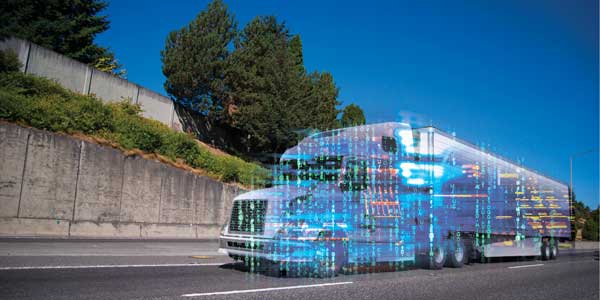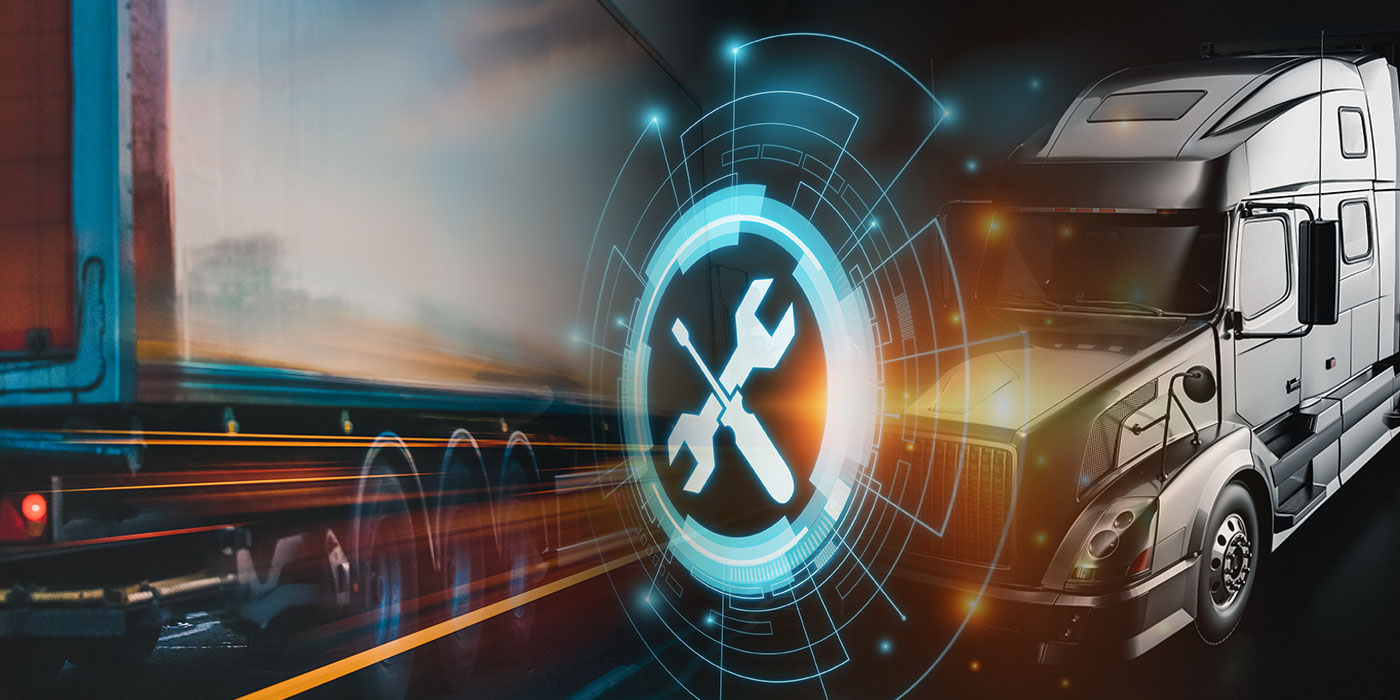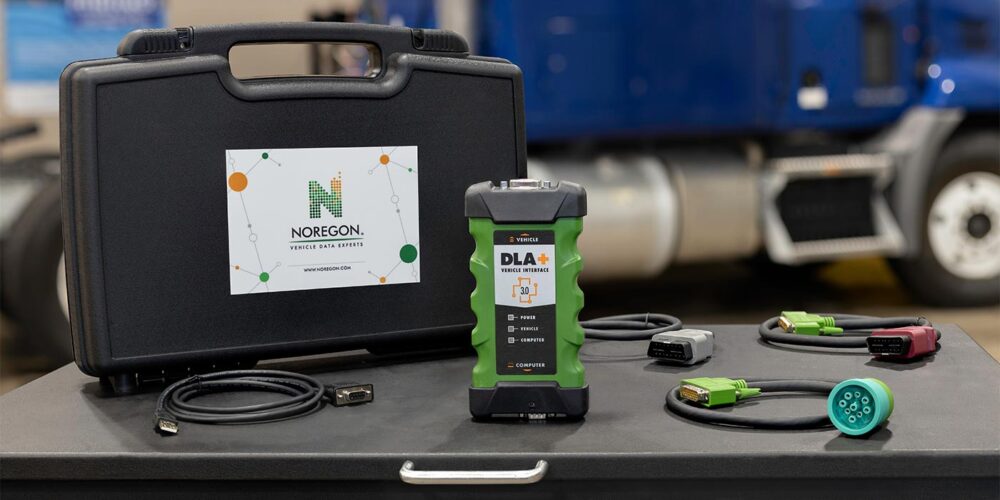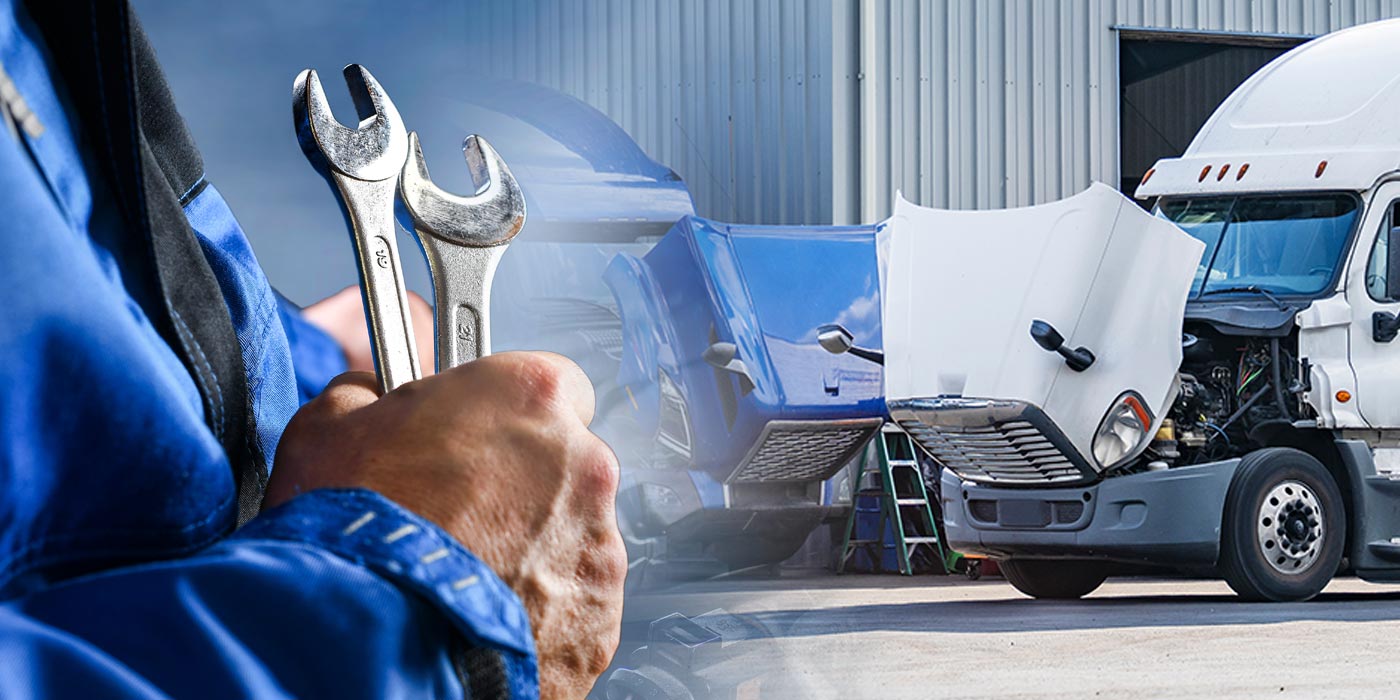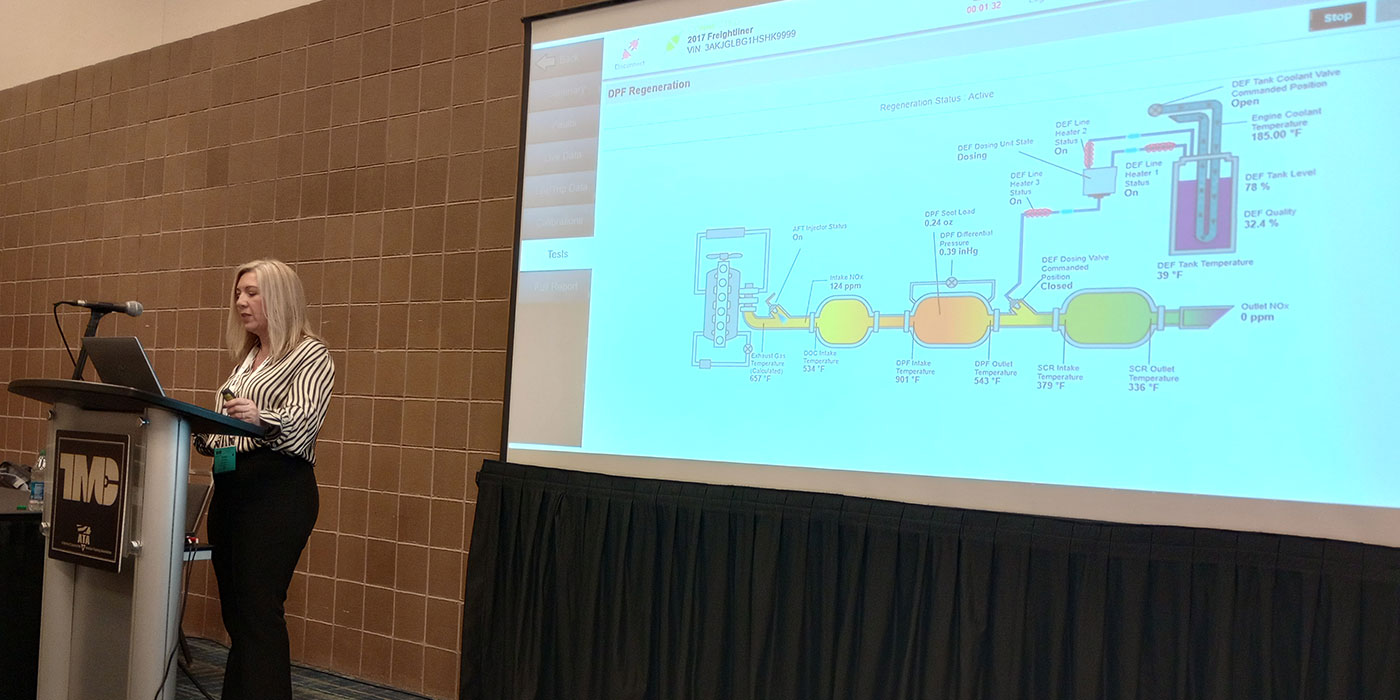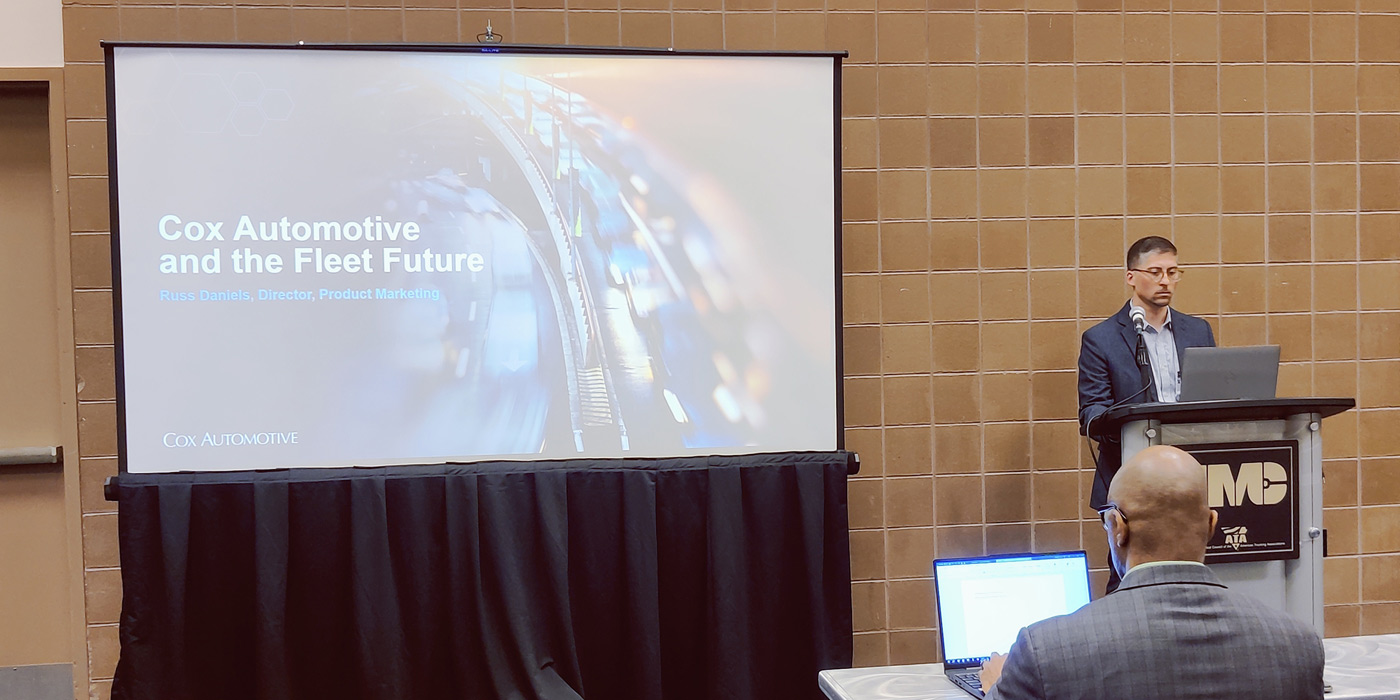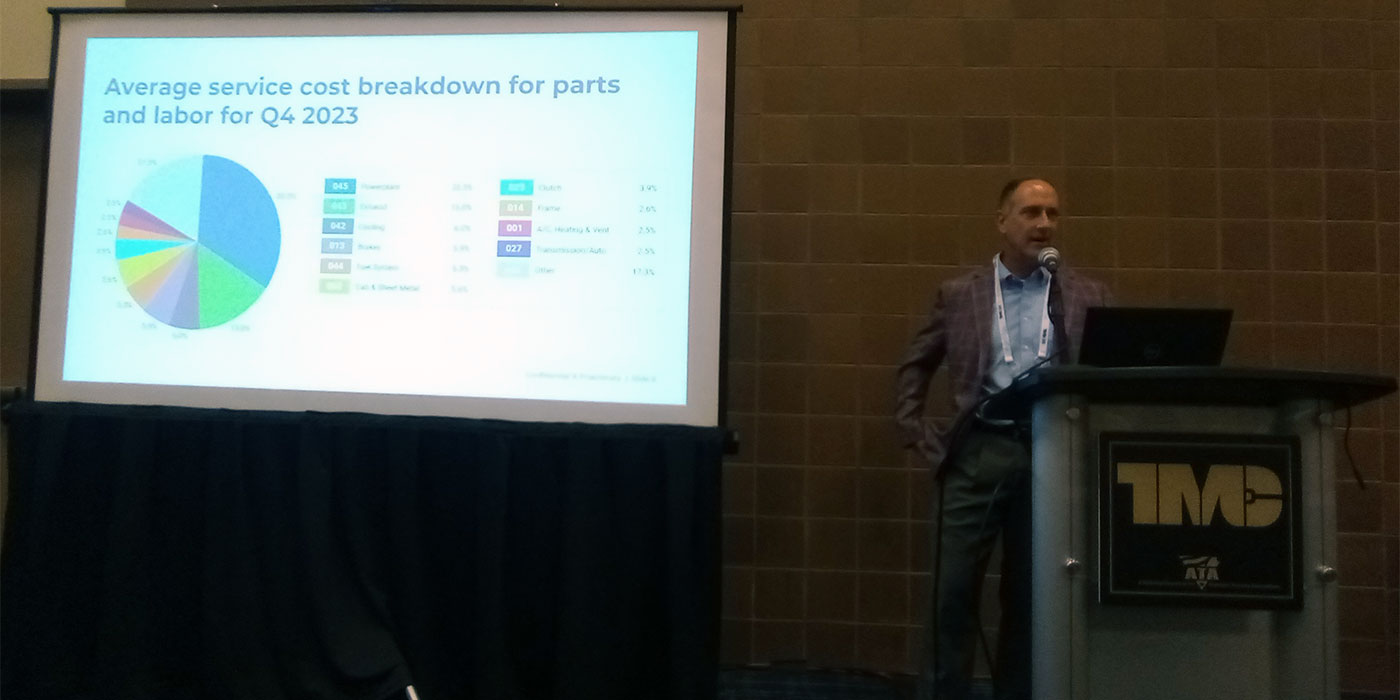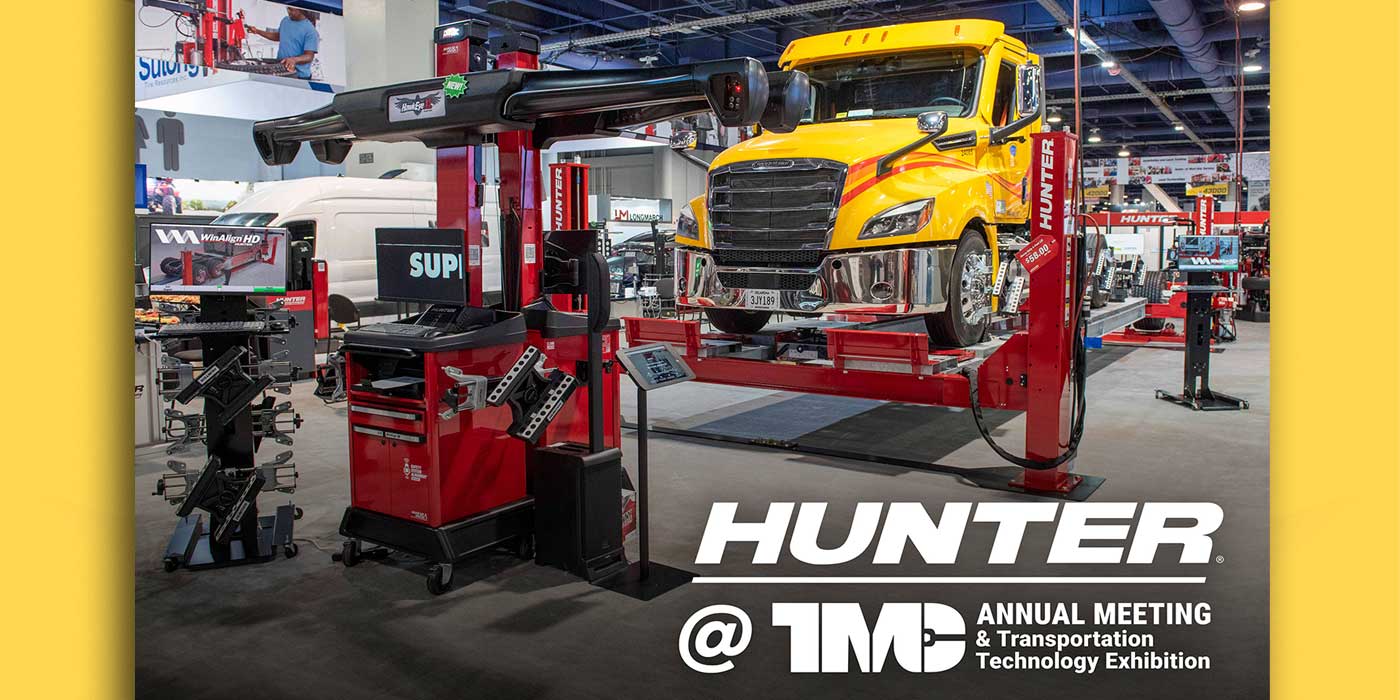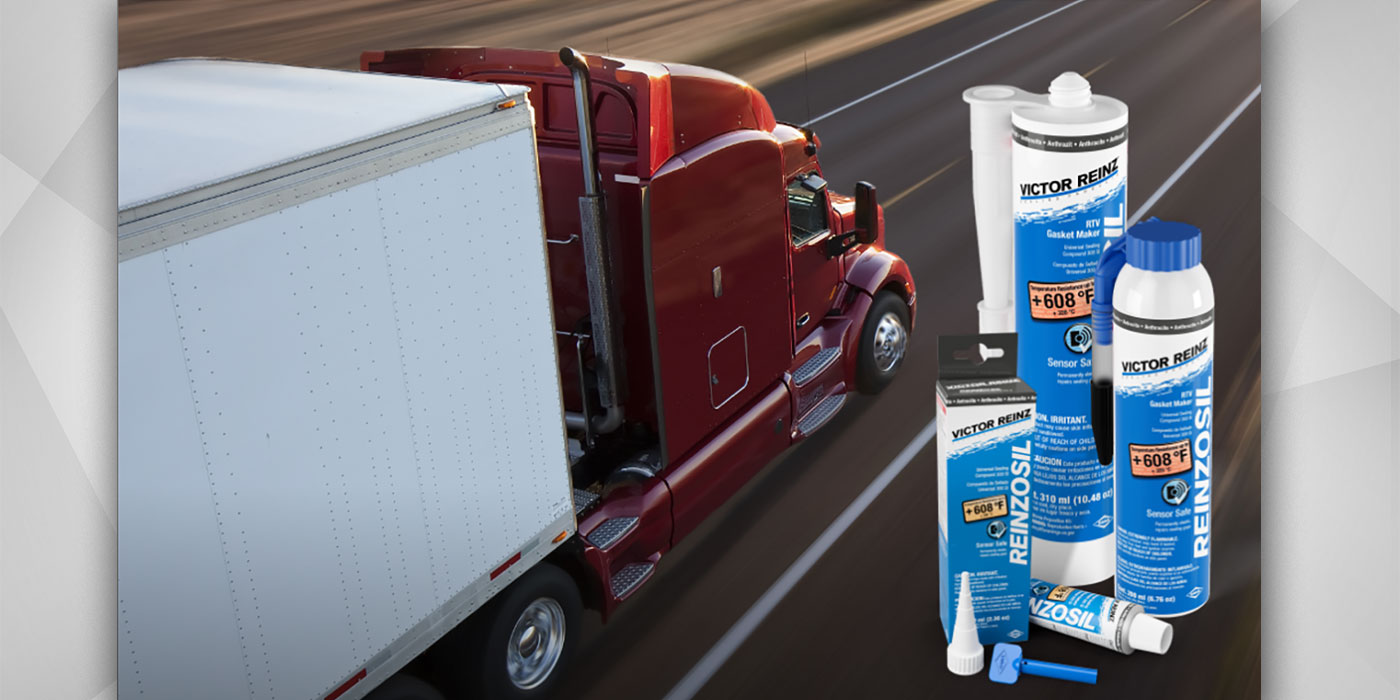Natural gas service varies significantly from diesel engine maintenance in every thing from service intervals to safety procedures. To start, one of the biggest differences in service intervals for Cummins Westport natural gas engines (the only natural gas engine provider in the Class 8 segment) as opposed to diesel is that there’s no “I’ll get around to it.”
“Maintenance needs to be done on time,” stressed Jason Bauer, technical support manager with Cummins Westport Inc. “Most automotive applications simply go by vehicle mileage to set maintenance intervals, but Cummins Westport natural gas engines use a vehicle mileage, engine hours, or calendar time format and specify performing maintenance based on whichever comes first. Most fleets will hit the engine hours interval before the mileage interval.”
Take oil change service, for example. Oil drain intervals for diesel engines are commonly a topic of conversation—should you extend them? Can you extend them? When it comes to natural gas wet service needs to be performed every 15,000 miles, according to Brent Bergevin, vice president of transportation for Gemini Motor Transport, the primary fuel-hauling fleet for Love’s Travel Stops. It is based in Oklahoma City and is a nationwide for-hire fuel, crude and specialty products motor carrier.
“There is no specified maintenance difference between Cummins Westport engines that operate on CNG, LNG, or renewable natural gas [RNG]. The engine and hardware are identical; the difference is only in the on-vehicle fuel supply system.”— Jason Bauer, technical support manager, Cummins Westport Inc.
“In addition to performing the oil and oil filter change on time,” Bauer chimed in, “using the correct engine oil is very important to the overall life of the engine. Cummins Westport natural gas engines use a different oil specification when compared to their Cummins diesel counterparts. In 2018, Cummins Westport announced a new oil specification — Cummins Engineering Standard (CES) 20092—that allows for longer drain intervals.”
Bergevin then noted that CNG engines require service for coils and spark plugs that don’t exist on diesel engines.
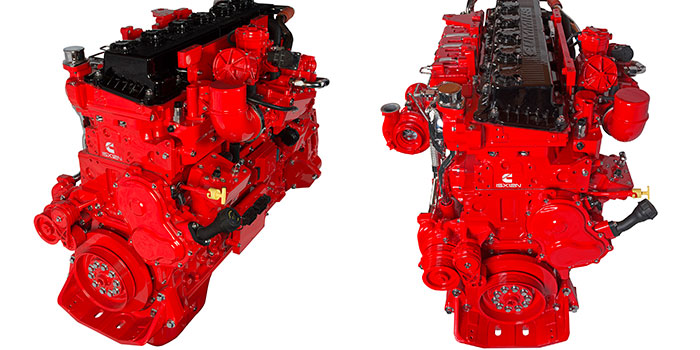
“Spark plugs used longer than specified cause misfire and drivability issues, and can cause excess stress on the overall ignition system,” Bauer said. “This then requires non-maintenance components to need replacement as well.”
“The natural gas engine’s most common unplanned maintenance issues include coil failures and plug wires and reoccurring pressure losses on the high pressure fueling side,” Bergevin said. “Service centers should remind professional drivers daily to drain the fuel filter, check vent caps and other routine procedures that a driver would typically perform on diesel truck.”
“While this can seem excessive to some drivers,” Bauer said, “it helps prevent fuel system contamination which can cause engine performance issues, low power, check engine lamps and potential engine shut down. Highlighting the impact that missing this simple step can have on drivability goes a long way to establishing why we suggest this is a daily maintenance step for drivers.
“Additionally,” he continued, “drivers should be looking at the condition of hoses and belts, monitoring the air filter system, checking fluid levels, and noting any leaks.”
Other important maintenance items are fuel filter training, ignition system inspection and valve lash (overhead) check/reset, Bauer said.
Safety first, and it bears repeating
Safety first. It’s paramount when it comes to servicing natural gas trucks—from performing maintenance on the trucks themselves to you ensuring that your shop is properly outfitted. Let’s start with the equipment.
“Ensure that the manual fuel shut-off valves are closed and that fuel system pressure is released,” Bauer said. “Beyond that, the same precautions should be taken as on any other medium- or heavy-duty vehicle as appropriate.”
The shop requirements, however, have to conform to specific regulations to ensure that you’re operating in a safe service environment.
“While all safety practices are important to follow during a natural gas truck service event, shops must be CNG-approved and have the necessary tools and shop approvals to perform all maintenance needs,” Bergevin said. “The shops must also be certified by a fire marshal for proper ventilation, which is uncommon when compared to other traditional shops.”
This is specifically for CNG in which there are specific codes and ordinances that must be met at the shop. In its Compressed Natural Gas Vehicle Maintenance Facility Modification Handbook, the U.S. Department of Energy, the office of energy efficiency and renewable energy, stated that local authorities having jurisdiction (AHJ) primarily use “NFPA 30A – Code for Motor Fuel Dispensing Facilities and Repair Garages, and the appropriate sections of the IFC.” The department also stated that other documents that could be used to approve permit applications include:
• International Building Code
• International Electrical Code
• International Mechanical Code
• NFPA 52 – Vehicular Gaseous Fuel Systems Code
• NFPA 88A – Standard for Parking Structures
• National Electrical Code
• National Fire Code
• National Mechanical Code.
What maintenance is associated with the fuel tank and systems?
“Tank inspections and certified high-pressure technicians who can work on the high pressure fueling side are necessary maintenance requirements associated with the fuel tank and systems,” Bergevin said.
Fuel supply system maintenance is specific by the manufacturer, Bauer said. Maintenance can include filter replacement and tank inspection as well as an overall system inspection. Be sure to review your specific fuel supply system maintenance requirements.

